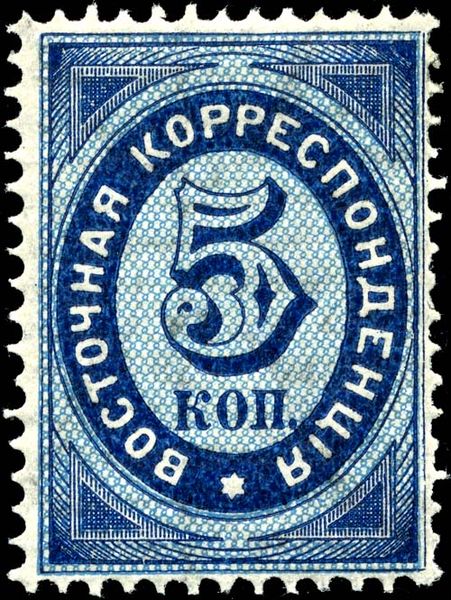
Writing numbers in English
Since librarians are always writing numbers in English, it is useful to know the general rule that the numbers one through nine should be written out one, two, three, four, five, six, seven, eight, and nine in sentences. Anything from 10 and higher, you can use numerals instead of spelling out the words. Why is this rule generally followed in English? Like most such rules, this is just to make whatever you write easier to read and understand. In Thai English, people use numerals all the time whatever the situation, so that you may see phrases such as “I have 3 brothers” or “We only have 1 mother.” Yet general usage in idiomatic English suggests that you should always write “I have three brothers” or “We only have one mother.”
Exceptions to this rule.
As with most rules in language, there is at least one exception to the generally accepted way of spelling out numbers less than 10, while using numerals for 10 and above. This happens when you write a sentence in which numbers below and above ten appear in the same sentence. For example:
My youngest brother is 2 years old and my oldest is 12 years old.
or
My youngest brother is two years old and my oldest is twelve years old.
If we put two numbers relating to the same subject very close together in the same sentence, then to make things match, we use numerals for both instead of spelling out “two” and writing 12 as a numeral. Again, this is done because it is considered clearer for anyone who has to read the sentence you have written. To make things even more complicated, if you write a very long sentence in which yet another number appears, but is not directly related to the other numbers you have already used, then you should follow the usual rule that says if it is less than 10, spell it out, or more than 10, use numerals:
My youngest brother is 2 years old and my oldest is 12 years old and they ate three durian.
This is not a great sentence and seems somewhat long, but sometimes sentences in Thai English are longer than they have to be. This is yet another good reason to keep your sentences as short as possible when you are writing English. There would be less confusion if you wrote two shorter sentences:
My youngest brother is 2 years old and my oldest is 12. They ate three durian.

Keeping things clear.
As mentioned, rules about how to write numbers are designed to make things clearer for the writer and reader, so if they seem complicated or confusing, it is only because many different kinds of things sometimes have to be said using numbers. One surprising rule is that if a number directly follows another number in a sentence, you cannot write both as a numeral or spell out both because that would be confusing. For example:
My freshman class had 300 eighteen-year-olds.
or
My freshman class had three hundred 18-year-olds.
Both are correct, and it would not be correct to write:
My freshman class had 300 18-year-olds.
The phrase above looks confusing, and some reader may think the writer means 30,018. To avoid this misunderstanding, it is best to write out one number and leave the other in numeral form, regardless of the usual rules that apply.
Hyphenating.
A hyphen is used when joined numbers are written out, from twenty-one to ninety-nine:
Twenty-three students failed their math exams.
You also put a hyphen between the numbers in fractions that you may have to write out:
Two-thirds of the class failed the exam.

Starting things right.
Another vague and complex rule is when you start a sentence with a number. Sometimes you spell it out and sometimes you use numerals. The choice depends on how big the number is and what it looks like. For example:
Fifteen years after Suriyothai died, Prince Bayinnong ascended to the throne as the King of Hongsawadee, the heir of the King Tabengchaweti.
You would not use the number 15 to begin a sentence – even though it is greater than 10 – because it is considered more elegant to start with a spelled-out word, in the same style as the rest of the phrase. The beginning of the famous Gettysburg Address by Abraham Lincoln is:
Four score and seven years ago…
It is never written:
4 score and 7 years ago…
This would be much less elegant and formal, and when we are writing theses or academic articles, we are trying to be formal and elegant. One exception to this custom is if the number at the beginning of a sentence is too long, and spelling it out in letters would seem clumsy or take up too much space:
67,741,401 people live in Thailand.
The above is correct usage, because in this case it would be too heavy and pedantic to spell out:
Sixty seven million, seven hundred and forty one thousand, four hundred and one people live in Thailand.
You would never spell out a year, so this would be correct:
1767 is the year the Ayutthaya royal line was extinguished.
You would never write, although you might say:
Seventeen hundred and sixty seven is the year the Ayutthaya royal line was extinguished.
Keep in mind that it is always possible to rearrange your sentence to avoid putting numbers at the very start of a sentence, just as you can write shorter sentences and sidestep other rules of English grammar. In general, if you are in doubt about a rule of grammar, try to say the same thing in a simpler way that does not present a problem for you in grammar.
Using commas.
It is good style to add a comma after every three digits of a number written in numeral form, starting from the end of the number in question:
3,089 servings of Pad Thai cost 92,670 baht.
67,741,401 people live in Thailand.

Keeping time.
In Thai English it is rarely understood that 12pm means noon and 12am means midnight. Faculty announcements are often printed proudly announcing seminars at midnight, when what is meant is 12 noon. For this reason, it is far easier and clearer to just write noon or midnight if you mean noon or midnight, instead of hoping you will remember whether 12pm means day or night.
(all images courtesy of Wikimedia Commons).
